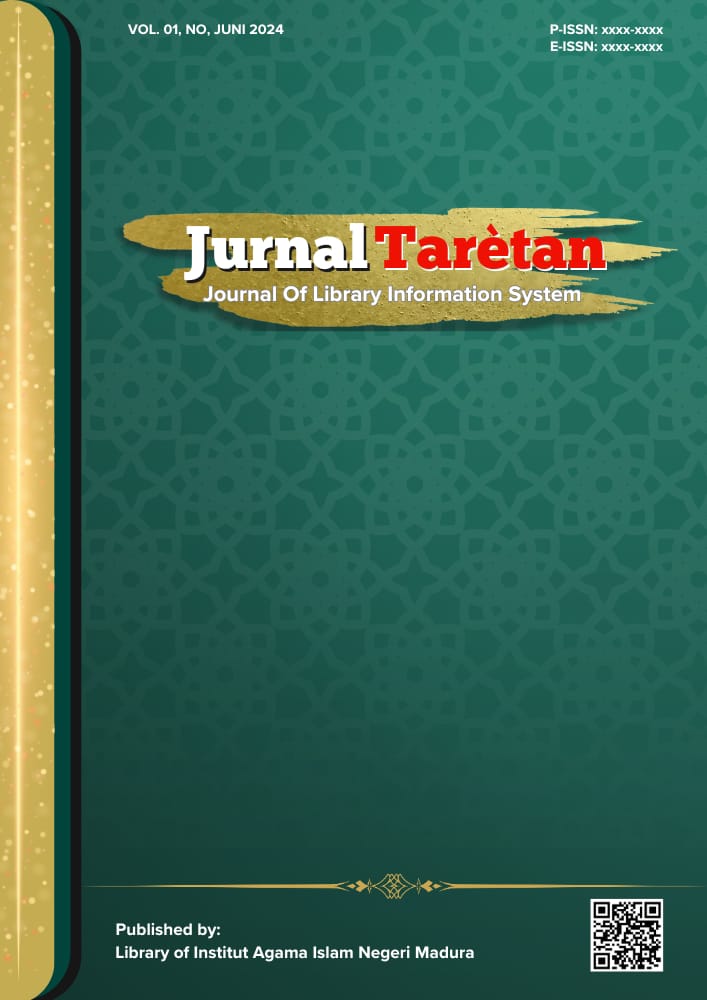Librarians, Information Technology (IT), and the Digital Native Generation
 Abstract views: 120
,
Abstract views: 120
,
 PDF downloads: 85
PDF downloads: 85
Abstract
Libraries aim to make the nation smarter by making libraries a primary need in the nation's daily life. The library ideally is a place to fulfill scientific satisfaction for oneself and even the general public. Librarians are human resources in libraries who should know their main duties and functions as librarians in accordance with applicable library legislation. Furthermore, the library digitalization movement is a form of progress launched by the government in facing the era 4.0 or generation Z. Information Technology (IT) has also been widely used by libraries in Indonesia, whether by elementary schools, middle schools, high schools or even high desert library. Furthermore, the role of librarians has also begun to be overwhelmed by the presence of users who are digital native generations with the existence of IT and its devices. The research method in this scientific work uses descriptive qualitative research methods and also uses library research methods. Librarians as human resources really determine whether library management is good or not by providing maximum services to users. Of course, the competence and knowledge of librarians is supported by IT, which can ideally make a library a beacon of knowledge and even the heart of an institution or organization or even the Indonesian nation, where the main goal of libraries is to educate the life of a just and prosperous nation, with adequate knowledge. obtained from the library.
Downloads
References
Rhoni Rodin, Teknologi Informasi dan Fungsi Kepustakawanan, Yogjakarta: Calpulis, 2017;
Blasius Sudarsono, Antologi Kepustakawanan Indonesia, Jakarta: Ikatan Pustakawan Indonesia (IPI), 2006;
Pawit, M. Yusup, Ilmu Informasi, Komunikasi, Kepustakaan, Jakarta: Bui Aksara, 2013;
Emzir, Metodologi Penelitian Kualitatif: Analisis Data (Edisi 1), Jakarta: Rajawali Press, 2014;
Komaruddin, Kamus Riset (Bandung: Angkasa, 1984);
Amir Hamzah, Metode Penelitian Kepustakaan, Batu: Literasi Nusantara, 2019;
Klaus Krippendorf, Content Analysis: Inroduction to its Theory and Methodology, Analisis Isi: Pengantar Teori dan Metodologi (Jakarta: Rajawali Press, 1991);
Iskandar, Pelayanan Perpustakaan, (Bandung: Refika Aditama, 2020)
Sutarno NS, Perpustakaan dan Masyarakat, (Jakarta: Sagung Seto, 2006);
Prijana & Andri Yanto, Metode Penelitian Perpustakaan dan Sains Informasi, Bandung: Simbiosa Rekatama Media, 2020.
Lantip Diat Prasojo & Riyanto, Teknologi Informasi Pendidikan, (Yogjakarta: Gava Media, 2011);
Sutarno NS, Membina Perpustakaan Desa, (Jakarta: Sagung Seto, 2008)
Barnawi & M. Arifin, Teknik Penulisan Karya Ilmiah, (Yogjakarta: Ar Ruzz Media, 2007).
Herry Hermawan, Literasi Media (Kesadaran dan Analisis), Yogjakarta: Calpulis, 2017
Testiani Makmur, Budaya Kerja Pustakawan di Era Digitalisasi (Perpsepktif organisasi, Relasi dan Indovidu), Yogjakarta: Graha Ilmu, 2015.





